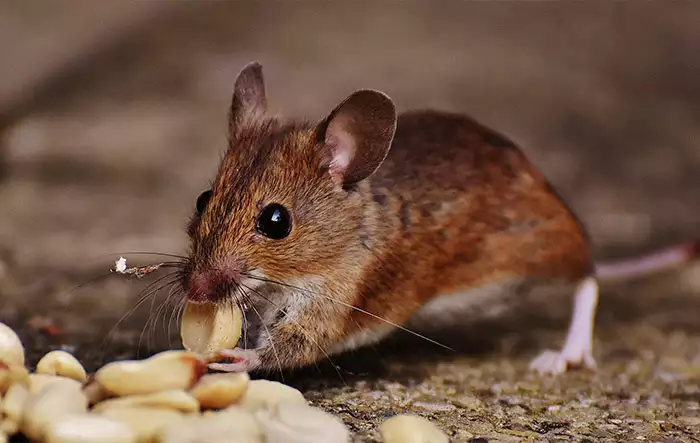Common rodents include mice, rats, squirrels, porcupines, beavers, guinea pigs, and hamsters. Rodents use their sharp incisors to gnaw wood, break into food, and bite predators. Most rodents eat seeds or plants, though some have more varied diets. Some species have historically been pests, eating seeds stored by people and spreading disease.
Rodents’ biology and habits can make them challenging to control, and they present a serious menace to your home. If you’re in need of rodent control services, here’s what you should know about these pests:
Rats
- Instincts: Rats are instinctively wary of things new to their environment, including rat control measures such as traps and bait, and colonize in attics, burrows, under concrete and porches, in wall voids and other hard-to-reach places.
- Disease: Rats can harbor and transmit a number of serious diseases. They can also introduce disease-carrying parasites such as fleas and ticks into your home.
Mice
- Access: They invade your home seeking food, water and warmth.
- Contamination: Each mouse can contaminate much more food than it eats.
Rodent Facts
Rodents are warm-blooded mammals that, like humans, can be found throughout the world. They have oversized front teeth for gnawing and check teeth, which are adapted for chewing. Rodents chew on a variety of items available to them and cause great damage in and around homes.
Rodents tend to be rapid breeders. Some species breed year-round, and populations are maintained through constant reproduction. Because of the rodents’ body plan, they are capable of squeezing through spaces that appear to be much too small for them. All such holes should be sealed to prevent entry and reentry of rodents. A pest control professional should be contacted for assistance.
Rats and mice are both extremely destructive within agricultural communities. A number of species feed on seeds and grains. The feces and urine of some rodents may contaminate surfaces with which they come into contact.
Life cycle :
Reproduction
Mice and rats reproduce rapidly, as is generally the case with small prey animals. Their relatively short life spans, short gestational periods and rapid sexual maturity make effective rodent control critical. The reproductive cycle and number of rodent offspring increases with adequate food, water and harborage.
House Mouse Reproduction Cycle
- Mice become sexually mature and able to mate in as little as 5 weeks. Generally, sexual maturity is reached in 5 to 8 weeks.
- Female mice reproduce up to 8 times in their lifespan, with litters averaging 4 to 7 pups. Therefore, a single female may produce up to 56 offspring annually.
Rat Reproduction Cycle
- Norway and roof rats become sexually mature and able to mate at 8 to 12 weeks of age.
- Norway rats average 8 to 12 pups per litter, averaging 4 to 7 litters per year.
- Roof rats average 4 to 8 pups per litter, averaging 4 to 6 litters per year.
- Related Reproductive Characteristics
House mice, Norway rats and roof rats share several reproductive characteristics:
- After giving birth they can be in heat and become pregnant in as little as 24 to 48 hours.
- Females can be pregnant and still lactate to feed their current litter of pups. However, the gestational period may be slightly longer in this case.
- They will reproduce year-round in stable environments with adequate food, water and harborage. Less favorable conditions limit reproduction to spring and autumn.
- The normal life expectancy of house mice, Norway rats and roof rats is approximately one year.
Home remedy :
Home remedies for rats include removing any food sources, crumbs, or trash that might attract rats. Cracks in the foundation, crevices and holes in the baseboard or floor should be sealed with steel or a substance that rats cannot eat through. Wood or debris around the house should be moved. Tall grass, weeds, and vegetation close to the perimeter of the house should be trimmed. Homemade rat bait made of peanut butter and boric acid can be placed near the areas of rat activity.


